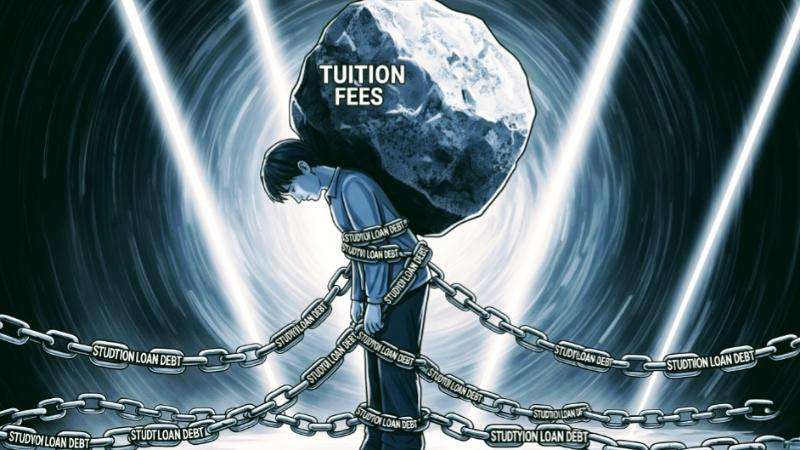The UK government has confirmed a significant change to student finance, announcing that the maximum tuition fee for undergraduate degrees in England will increase for the 2025-26 academic year. This marks the first rise in fees since 2017, with the new cap set at £9,535, an increase of £285 from the current £9,250. This decision is part of a broader plan to allow future annual increases in line with inflation, a move aimed at shoring up the financial stability of universities, many of which face significant budget deficits, Daily Dazzling Dawn understands.
The government has stated that the increase is necessary to help universities manage rising costs and maintain the quality of education. This shift to an inflation-linked model represents a major policy change. While some argue this move is a pragmatic solution to a funding crisis, it raises serious questions about the long-term impact on students and the ballooning national student debt.
The Rising Burden of Student Debt
For students, this change means a direct increase in the amount they will borrow. The average student loan debt for new undergraduates is already substantial, with recent data showing that students in England leave university with an average debt of around £53,000. The additional £285 per year will add to this burden, compounding over a typical three-year degree to nearly £855 in extra debt, not including the impact of compounding interest.
While the government has stated that monthly student loan repayments will not change as they are based on a graduate’s income, not their total debt, the increase does have a psychological and long-term financial impact. Higher total debt means more graduates will be making repayments for a longer period. Under the current repayment system (Plan 5), which came into effect for new students from 2023, graduates repay 9% of their income above a certain threshold, and the loan is written off after 40 years. This increase makes it even less likely that many graduates will ever pay off their full loan, extending their repayment term and creating a lasting sense of financial pressure.
An Uncertain Future for Graduates
The new policy creates a sense of uncertainty for prospective students and their families. While maintenance loans will also rise in line with inflation to help with living costs, many students feel the constant increases in fees and living expenses are a barrier to accessing higher education. The feeling of starting adult life with a five-figure debt can influence life choices, such as buying a house or starting a family.
Critics, including student advocacy groups like the NUS, argue that the system is broken and places an unfair burden on young people. The Institute for Fiscal Studies (IFS) has noted that because repayments are tied to income, the immediate impact on graduates’ finances is minimal, but the long-term fiscal burden on the state and the psychological weight on students are significant. The government’s move to index fees to inflation annually is a stark reminder that the cost of higher education is not a one-off fee, but a continuously growing financial commitment for the individual.







.svg)

_1.jpg)
